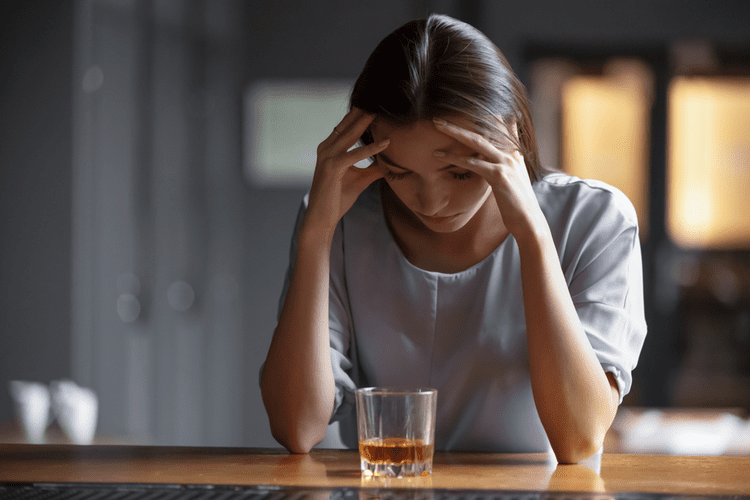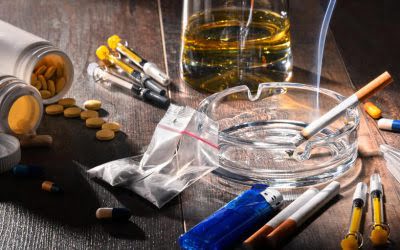Its symptoms also tend to be similar for most addictions, unlike acute withdrawal, which tends to have specific symptoms for each addiction [1]. The tasks of this stage can be summarized as improved physical and emotional self-care. Clinical experience has shown that recovering individuals are often in a rush to skip past these tasks and get on with what they think are the real issues of recovery. alcohol relapse rate Clients need to be reminded that lack of self-care is what got them here and that continued lack of self-care will lead back to relapse. They are caused by insufficient coping skills and/or inadequate planning, which are issues that can be fixed [8]. Clients are encouraged to challenge their thinking by looking at past successes and acknowledging the strengths they bring to recovery [8].

The good news is that relapse rates are significantly lower for those who seek alcohol addiction treatment compared to people who try to get sober on their own. The alcohol relapse rates from the study are also similar to drug relapse rates6 reported by the National Institute on Drug Abuse. The earlier the signs of an alcohol relapse are recognized in yourself or someone you love, the sooner you can take action. The sooner you take action, the greater the likelihood of maintaining long-term recovery. Warning signs of alcohol relapse can vary depending on the person.
What Is Relapse?
Having a comprehensive treatment plan that includes relapse prevention is important since recovery doesn’t end when you leave your substance use treatment program. Together with a licensed professional, you will develop a treatment plan that is individualized to your needs and is monitored throughout your time in treatment. Alcoholism is a chronic disease that takes months or years of treatment and support to recover from. It takes years to conduct studies on people recovering from alcoholism. That’s why 2017 and 2018 alcohol relapse statistics aren’t available yet.
Reassure them that one setback does not define their ability to achieve sobriety. Focusing on self-care from a psychological, emotional, and physical perspective can improve a person’s emotional state. The influence of dopamine, the „happy” chemical, can cause changes in the brain. Substance use can affect the brain by damaging systems responsible for cognitive control.
Understanding relapse – what are the stages?
You try to convince yourself that everything is OK, but it’s not. You may be scared or worried, but you dismiss those feelings and stop sharing them with others. Addressing mental urges can be an effective tool for preventing relapse, at least on a short-term basis. Speaking to someone about the urge to use can often help to reduce that urge and bring rational thinking to the forefront of the equation. This is a reason that a lot of support programs employ the use of a sponsor; it can be critical to have someone to talk to when the urge to use arises.
A healthy lifestyle contributes to overall well-being and resilience. Developing effective coping strategies to handle cravings can help people avoid setbacks. Research shows that the use of drugs and alcohol can alter the brain. The resurgence of physical health symptoms after a period of well-being signifies a physical health relapse. 6A third FDA-approved medication to treat alcohol dependence (disulfiram; Antabuse®) targets alcohol metabolism. Recovering individuals are often overwhelmed by the idea of change.
Alcohol Use Disorder: What to Know About Relapse
Patrick McCamley (Clinical Therapist) is a Cincinnati native who has worked in substance use disorder/co-occurring mental health disorder treatment since 2019. Patrick received his bachelors degree in psychology from University of Cincinnati in 2021 and received his LCDC III (Licensed Chemical Dependency Counselor) license from the Ohio Chemical Dependency Professionals Board in 2022. Patrick has worked in Clinical Operations, Clinical Case Management, and Clinical Therapy throughout his career. It’s an opportunity for growth and renewed commitment to your sobriety. By implementing these prevention tips and seeking support when needed, you can significantly reduce the risk of relapse and work toward a healthier, alcohol-free life.

If you’re struggling with addiction or dealing with a relapse, it’s essential to seek support, take care of yourself, tap into your ability to sustain your recovery goals, and discuss a relapse prevention plan with your care team. Those who abstained from opioids, even for a relatively short period of time, are at increased risk for accidental overdose. As part of relapse prevention it is critical to educate patients about the danger of unintentional overdose after a period of staying clean. With abstinence (or even reduced use), the individuals tolerance level for the drug decreases; resorting to using prior (e.g., pre-relapse) doses of opioids can cause overdose and death. Injectable-naloxone kits may help prevent a fatal opioid overdose in active users. In addition to these common signs, patients may have their own unique indicators as well that signal they are drifting away from recovery.
How to Identify Your Triggers
3) Clients feel they are not learning anything new at self-help meetings and begin to go less frequently. Clients need to understand that one of the benefits of going to meetings is to be reminded of what the “voice of addiction” sounds like, because it is easy to forget. If it happens, it is important that you get back up, dust yourself off, and get back on the path to recovery. If it happens, it is important that you get back up, dust yourself off and get back on the path to recovery.
I consider myself to be an advocate for the addicted population. My compassion, resilience, empathy, wisdom, knowledge, experience and love I have for this forgotten population goes beyond words. I consider what I do for the addicted population as a calling versus a “career,” because I too was once an “addict and alcoholic.” Today I am 45.5 years alcohol and substance free. I strive each day to serve my purpose of helping those in need and I believe I do so by utilizing all of my experiences to accomplish my goal of supporting those who desire to establish their sobriety and maintain it in their recovery. I recently joined Ohio Community Health Recovery Centers as a Clinical Case Manager.
Addicts must lie about getting their drug, hiding the drug, denying the consequences, and planning their next relapse. Clinical experience shows that when clients feel they cannot be completely honest, it is a sign of emotional relapse. It is often said that recovering individuals are as sick as their secrets. One of the challenges of therapy is to help clients practice telling the truth and practice admitting when they have misspoken and quickly correcting it. More broadly speaking, I believe that recovering individuals need to learn to feel comfortable with being uncomfortable.
